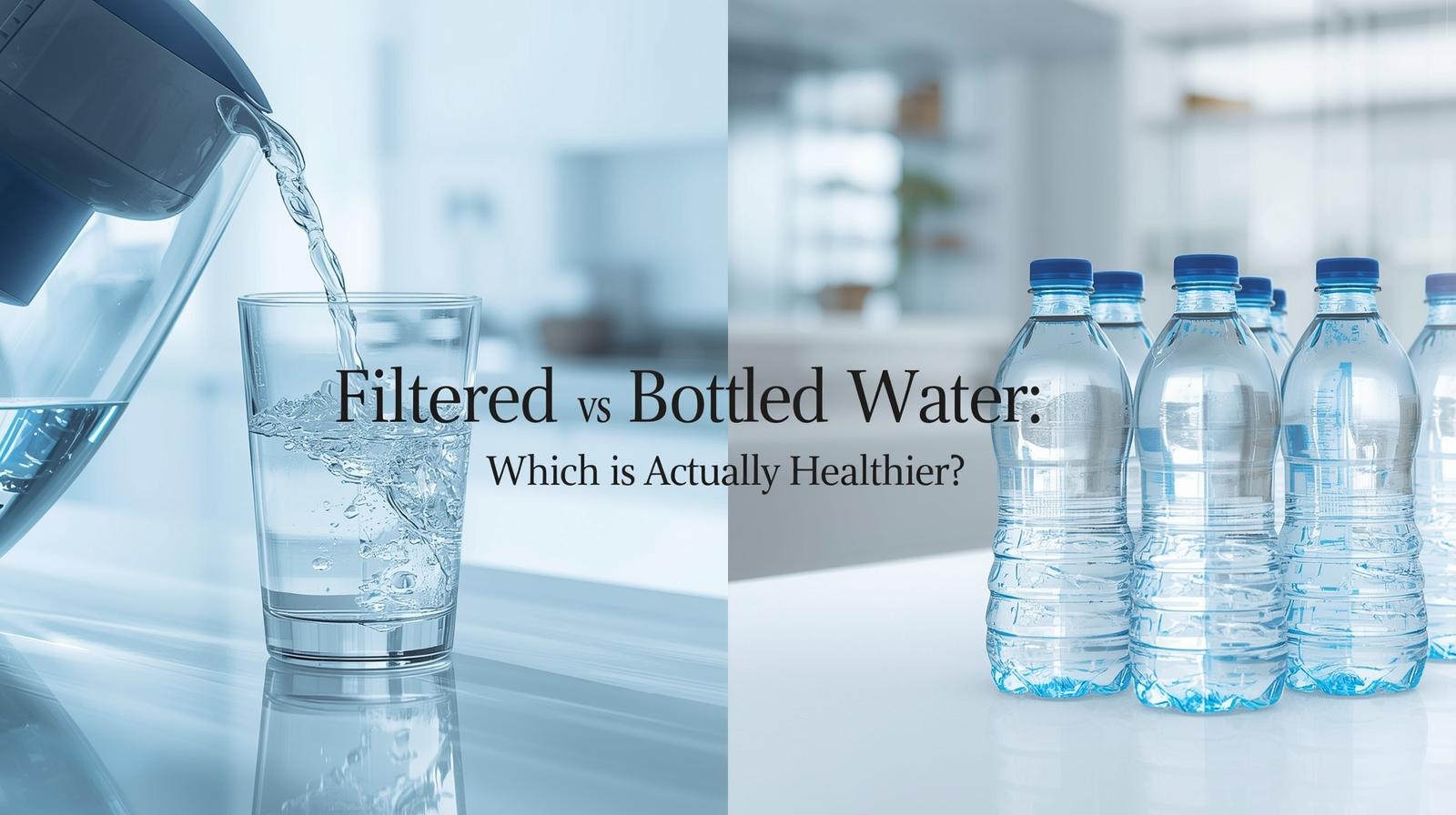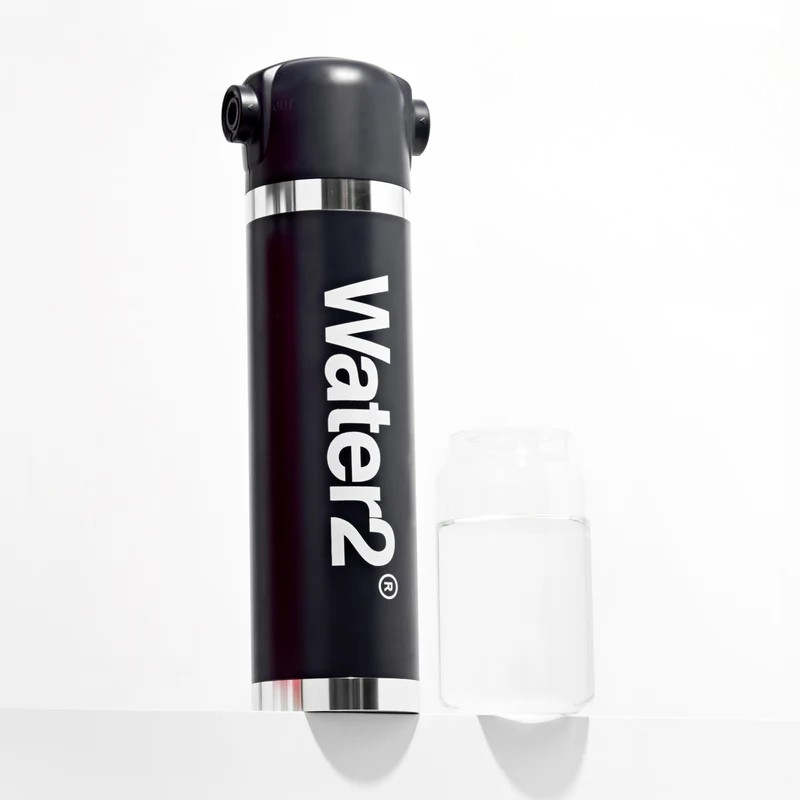Filtered vs Bottled Water: Which Is Actually Healthier?
Explore the filtered vs bottled water debate and discover which is truly healthier for you and your family. Learn about the health, environmental, and cost differences between bottled and filtered water, and find out how modern filtration systems can give you cleaner, safer, and more sustainable hydration at home.

The filtered vs bottled water debate is one many of us face daily when reaching for a glass of water. We all know hydration is key to good health, but the source of that water matters more than you might think. With concerns about tap water quality and the environmental impact of plastic bottles, making an informed choice is crucial. This guide will explore the nuances of both options, helping you understand which is truly better for your health and wallet.
We'll look into the safety, cost, environmental effects, and convenience of filtered and bottled water. By understanding the complete picture, you can make a decision that aligns with your health goals and personal values.
Unpacking Water Quality: What’s Really in Your Glass?
When we talk about water quality, we're discussing what's left after it’s been treated. Both tap water (which you'd filter) and bottled water are subject to regulations, but they differ significantly. In the United States, the Environmental Protection Agency (EPA) regulates municipal tap water, while the Food and Drug Administration (FDA) oversees bottled water.
Many assume bottled water is the pinnacle of purity, but that's not always the case. Some bottled water is simply filtered municipal water, the same liquid that comes from your tap. The main difference lies in the filtration process and the potential for contaminants to enter along the way.
The Hidden Costs of Bottled Water
The convenience of grabbing a plastic bottle of water is undeniable, but it comes with several downsides. Environmentally, the production and disposal of plastic bottles create a massive carbon footprint and contribute to landfill waste. Financially, the cost of bottled water adds up quickly, often costing hundreds or even thousands of times more than tap water per gallon.
There are also health concerns associated with bottled water. Studies have found microplastics in many popular brands. These tiny plastic particles can leach from the bottle into the water, and while research is ongoing, their long-term health effects are not fully understood.
The Rise of Home Filtration: A Closer Look at the Water 2.0 Revolution
Home water filtration offers a powerful alternative to bottled water, giving you direct control over the quality of your drinking water. Modern systems are more effective and accessible than ever, representing a shift toward what some call a water 2.0 approach to home hydration. Instead of relying on external sources, you can purify water right at the source.
An effective water filter can remove a wide range of common contaminants, including chlorine, lead, pesticides, and other industrial pollutants that may be present in municipal water supplies. This ensures the water you drink, cook with, and wash your produce in is clean and safe.
Choosing Your Ideal Under Sink Water Filter
When selecting a filtration system, an under sink water filter is a popular and highly effective choice. These systems are installed directly into your plumbing, providing a constant supply of purified water from a dedicated faucet. They are discreet, long-lasting, and offer a higher level of filtration compared to simpler pitcher filters.
Here are some factors to consider when choosing a system:
-
Check which specific contaminants the filter is certified to remove. Not all filters are created equal.
-
Consider how often you will need to replace the filter cartridges. A long-lasting starter kit replacement filter can offer better value over time.
-
Ensure the system can provide water at a speed that meets your household's needs.
-
Some systems are DIY-friendly, while others may require professional installation.
FAQ: Do under sink filters remove healthy minerals?
Answer: Some advanced filters, like reverse osmosis systems, can remove minerals. However, many carbon-based filters are designed to leave beneficial minerals like calcium and magnesium in the water.
Addressing Specific Contaminants: The Importance of a Fluoride Filter
While fluoride is added to many public water supplies to promote dental health, some people prefer to remove it for various personal health reasons. If this is a concern for you, it's important to choose a system specifically designed for this purpose. Standard carbon filters typically do not remove fluoride.
A specialized Fluoride Filter attachment or a reverse osmosis system is generally required to effectively reduce fluoride levels in your drinking water. These systems provide an extra layer of targeted purification, giving you peace of mind about what's in every glass. This level of customization is a key advantage of home filtration over bottled water, where you have little information about specific contaminant removal.
FAQ: Is fluoride in tap water dangerous?
Answer: Public health organizations generally consider community water fluoridation a safe and effective way to prevent tooth decay. However, personal choice and specific health situations may lead individuals to seek out fluoride removal options.
Beyond Drinking Water: Why You Need Shower Filters
Our focus is often on the water we drink, but the water we bathe in matters, too. Your skin is your body's largest organ, and it can absorb chemicals present in your shower water. Chlorine, commonly used as a disinfectant in municipal water, can strip natural oils from your skin and hair, leading to dryness, irritation, and dullness.
Installing high-quality shower filters can make a noticeable difference. A good filter for shower head attachments can remove chlorine and other contaminants, resulting in softer skin and healthier, shinier hair. It's a simple upgrade that extends your commitment to clean water throughout your entire home, not just the kitchen.
FAQ: How often do I need to change a shower filter?
Answer: Most shower filters need to be replaced every six months, but this can vary based on your water quality and household usage.
Why Filtered Water Wins for Health and Home
When comparing filtered vs bottled water, the advantages of home filtration become clear. Filtered water provides a safer, more cost-effective, and environmentally friendly solution. It empowers you to take control of your water quality, removing specific contaminants and ensuring your family has access to pure, great-tasting water on demand.
While a complete water softener system might be necessary for homes with very hard water, a combination of an under-sink unit and shower filters addresses the most common quality concerns for most households. Investing in a reliable water filtration system is an investment in your long-term health and well-being. By making the switch, you reduce your exposure to potential contaminants like microplastics and lead while also minimizing your environmental impact and saving a significant amount of money over time.
Recent Blogs
-

Naked Cashmere Soft Knitwear Guide
-

Is Besque Magic Body Oil the Secret to Firmer, Radiant Skin at Every Age
-

How Can Katalys Support Partners, Brands, and Agencies in Earning More From Content
-

How Can Agencies, Ad Tech Platforms,s and Brands Drive Real Sales Through Embedded Commerce
-

Drink with Style: Watch Out for Stanley EU’s Latest Collection